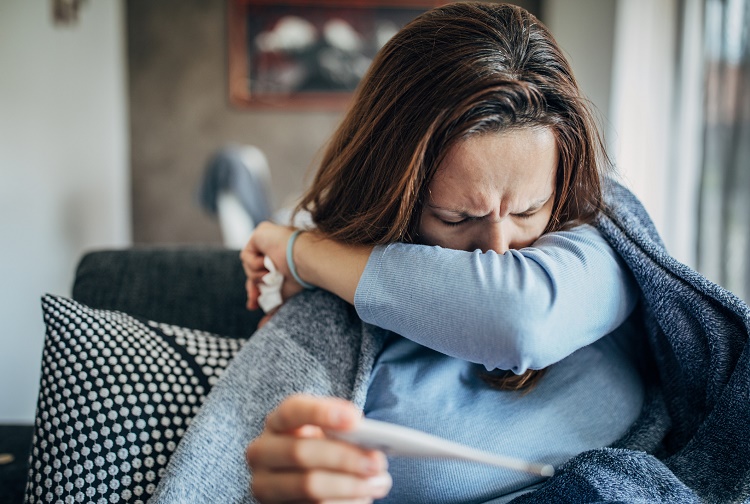
Kids and the COVID-19 vaccine: What parents should know
Our expert explains what the vaccine means for children.
December 14, 2020
All eyes are on the new COVID-19 vaccine and its promise for a healthier year ahead. As a parent, you may have questions about whether the vaccine is safe for children. Here, Dr. Emily Godbout, epidemiologist and infectious diseases specialist at Children’s Hospital of Richmond at VCU (ChoR), answers your questions.
Why won’t the coronavirus vaccine be available for kids and adults at the same time?
So far, the COVID-19 vaccines have only been fully tested on adults. Children’s immune systems are different from adults and their immune systems can even vary at different ages.

Are the vaccines safe?
Before they can be given to the general public, vaccines go through a rigorous series of trials and approvals to address their safety and effectiveness. In general, approved vaccines are safe and effective at helping prevent severe disease.
The safety of COVID-19 vaccines is a top priority. Multiple federal partners have worked together to ensure that the COVID-19 vaccines are as safe as possible. Health officials review all the safety data from the clinical trials to ensure the vaccines are safe before making them available to the general public.
Should children with a compromised immune system get the COVID-19 vaccine when it’s available for kids?
Only non-pregnant adults participated in the early clinical trials for various COVID-19 vaccines. We need more information to determine which groups of children, such as those with compromised immune systems, can safely get the vaccine. Clinical trials continue to expand, so hopefully, we will have this information in the near future.
How has CHoR prepared for the vaccine?
VCU Health has worked closely with state and federal agencies to prepare for the vaccine’s arrival and distribution. A limited supply of COVID-19 vaccine will arrive this week. This vaccine needs to be stored at ultra-cold temperatures (minus 80°C or below). We already have ultra-cold freezers set to minus 80°C for storage and have purchased an additional freezer to make sure we have ample space.
Initially, the vaccine will be reserved for front-line health care workers. As more doses become available, we’ll be able to provide them to patients and community members. There is still more to learn about the vaccine before we plan to start giving it to kids. As part of an academic medical center, we’re able to stay on top of the latest research and will continue providing the best and safest care possible to our pediatric patients.
Will the coronavirus vaccine need to be given annually, like the flu shot?
The coronavirus vaccine studies are currently evaluating whether one or two doses are needed originally. When giving two doses, they’re usually done one or two months apart. We don’t yet know how long immunity will last. It’s possible that over time more doses will be needed to provide continued protection — similar to many vaccines we have been getting routinely for years.
What should my family do until there is a vaccine for kids?
The biggest thing right now is to keep up with the practices currently in place to protect against COVID-19 – handwashing, social distancing and masks for those age 2 and older. Self-quarantine at home if anyone in your family might be sick to avoid spreading the virus. It’s also important to keep up with routine vaccinations and medical care to help everyone stay healthy.
Find more news and information on COVID-19 and children, please visit Children’s Hospital of Richmond at VCU.



